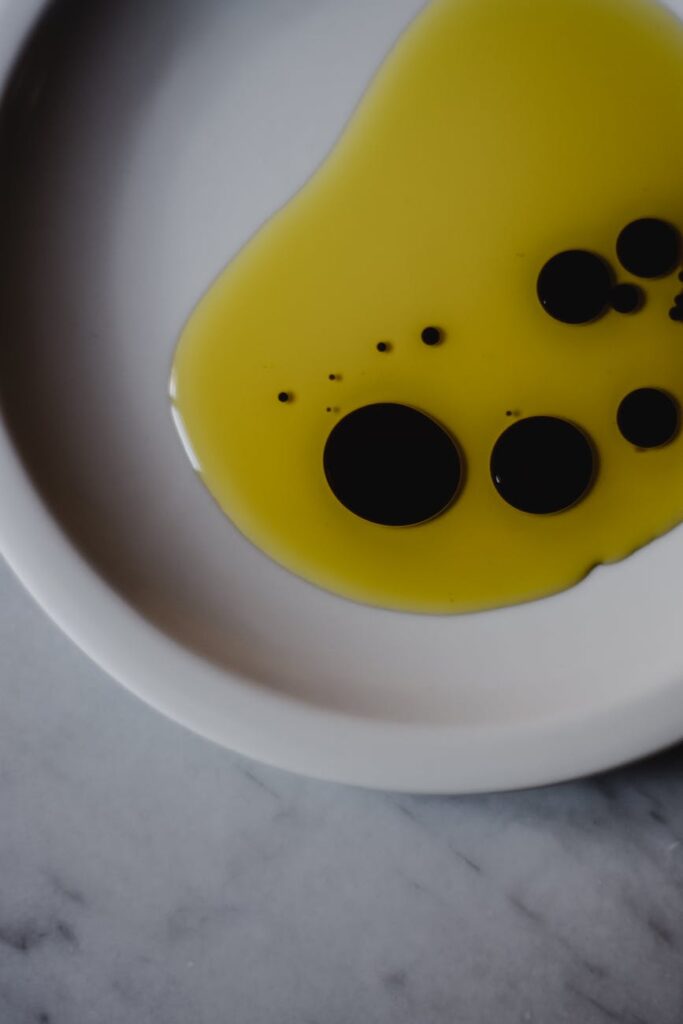It seems like a strange question to ask: why would anyone be feeding their dog balsamic vinegar? It’s not as if the bottles are on the shelves of our pet stores – darling, did you buy the salad dressing for Fidget’s kibble?
But questions like this are inevitable when you have a dog. Some breeds are always snaffling for food. They’ll take any opportunity to stick their mouths into a potential source of food. Dogs don’t often know what’s good for them and what isn’t. Maybe you’ve accidentally left a grocery item out or an unwashed plate next to the sink, and one minute your dog is nowhere to be seen, but in the next, they’re nose deep in your salad bowl licking it up as if they’ve never eaten a single thing in their life.
That’s how half of these internet enquiries start. Owners are worried about the things they’ve caught their dogs eating. And whilst it’s easy to be glib about these types of things, some foods are toxic to dogs. And some can even kill. We all know about things like grapes, but there are hidden dangers too – like the sweetener xylitol, which is incredibly hazardous to dogs.
It’s worth having an inventory of what’s in your cupboards or at least making sure that your dogs can’t get at things that may be harmful to them. But what about one of the most popular salad dressings available: can dogs eat balsamic vinegar?

Can Dogs Eat Balsamic Vinegar?
For the most part, balsamic vinegar shouldn’t pose any threat to your dog. Whilst it does contain grape must, and grapes are toxic to dogs, the concentration of the grape isn’t enough for it to be harmful. That is, of course, assuming that you’re talking about a dog consuming a few slurps and not several bottles.
Veterinarian Dr Michael Salkin writes that dogs would need to eat around 1.2 grapes per kg of weight for toxicity to be a concern. For example, it would take approximately 25 grapes for a 45lb dog to be considered dangerous.
If your dog gets hold of a bunch of grapes and starts eating, then that’s concerning, as are raisins and grape extract, too. Balsamic vinegar does not contain that many grapes.
If you’re concerned, we would always recommend speaking to your veterinarian. We’re not veterinary experts, and this post is not medical advice. Monitor your dog for changes in behaviour or personality whenever they’ve eaten something they shouldn’t have.
Balsamic vinegar may not be toxic to dogs, but you shouldn’t encourage your dog to eat it. There’s no nutritional benefit. The acidity can also cause stomach upsets in some dogs. Dogs with kidney problems should also not be fed balsamic vinegar.
You should also be aware that not all balsamic vinegar gets made the same way. Authentic balsamic vinegar is more expensive and harder to find in grocery stores or supermarkets. You’ll find it easier to locate cheaper brands that use additional ingredients not found in traditional balsamic vinegar. They may include sweeteners. Some of which could be unsuitable for a dog’s diet and cause gastrointestinal upset. It’s always worth checking the specific brand that you have. Some use fructose which makes it high in sugar.
It’s worth mentioning that not all dogs like the smell of vinegar, and this may be enough to keep your pet away from your bottle of salad dressing. Vinegar does have a pungent smell, and balsamic vinegar, in particular, is sharp. Some people spray vinegar in their house to keep pets off their furniture!
Ultimately, dogs shouldn’t be eating balsamic vinegar. It offers nothing to their diet and can cause an upset stomach. Fortunately, if your dog has sneaked a few slurps of balsamic vinegar, then it’s unlikely to cause any trouble. It’s helpful to form the habit of keeping foods and leftovers away from dogs. It’s easier said than done, and we’ve certainly had a few close calls over the years with our dog, but it’s worth trying.

